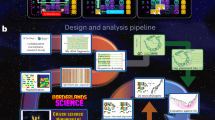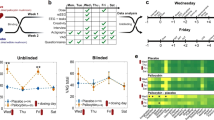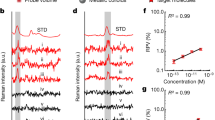Abstract
IN their recent paper under the above title (Sitzungsber. d. Phys.-Med. Sozietät, Erlangen, Bd. 56, pp. 17-36, 1924) Profs. Wiedemann and Ruska used (among others) the Dresden MS. 210, which contains a list of “Decknamen” for iron, copper, tin, lead, mercury and sal-ammoniac, twenty-four for each substance. It may be worth recording that a list so similar as to point to a common origin occurs in the British Museum MS. Add. 25724, ff. 15 verso-17 recto. This gives 24 names each for iron, copper, sulphur, tin, lead, mercury and sal-ammoniac, so that it affords a check upon Wiedemann and Ruska's list in the case of the six bodies mentioned, and supplements it with the names of sulphur, which are missing from the Dresden MS. The two MSS. agree in being anonymous, while the caption at the head of the list in the Dresden MS. is identical with that in the Brit. Mus. MS.
This is a preview of subscription content, access via your institution
Access options
Subscribe to this journal
Receive 51 print issues and online access
$199.00 per year
only $3.90 per issue
Buy this article
- Purchase on Springer Link
- Instant access to full article PDF
Prices may be subject to local taxes which are calculated during checkout
Similar content being viewed by others
Author information
Authors and Affiliations
Rights and permissions
About this article
Cite this article
HOLMYARD, E. “Alchemistische Decknamen”. Nature 117, 155–156 (1926). https://doi.org/10.1038/117155b0
Issue Date:
DOI: https://doi.org/10.1038/117155b0
Comments
By submitting a comment you agree to abide by our Terms and Community Guidelines. If you find something abusive or that does not comply with our terms or guidelines please flag it as inappropriate.



